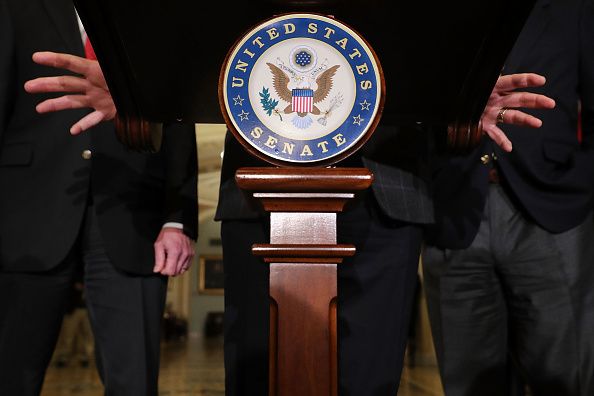 As Congress continues negotiations on approving the federal budget with the threat of a government shutdown looming, CEOs following the saga are dealing with the one thing they dislike most—uncertainty. And things aren’t likely to get better anytime soon.
As Congress continues negotiations on approving the federal budget with the threat of a government shutdown looming, CEOs following the saga are dealing with the one thing they dislike most—uncertainty. And things aren’t likely to get better anytime soon.
“A shutdown does have a direct negative effect on the economy that gets worse as time goes on,” Stan Collender, adjunct professor at the McCourt School of Public Policy at Georgetown University and author of “The Guide To The Federal Budget” told Chief Executive. “A typical CEO may not care that much about a typical two-day, three-day, one-week shutdown, but its effects multiply over time, directly. People get laid off, any work with the government basically stops, you can’t get your invoices paid, so there are a series of direct effects.”
The longer-lasting impact of the budget back-and-forth is more emotional and psychological, according to Collender, because it puts the disfunction of the federal government in the spotlight and leaves the public wondering if officials will ever be able to work together effectively.
“For a lot of people, a shutdown is a positive political event.” – Stan Collender
“If Congress and the President can’t agree on some basic, nuts-and-bolts housekeeping activities like passing appropriations to keep the government open, what happens when you’re asking them to make a major policy change?” Collender says.
With issues such as the Deferred Action for Childhood Arrivals (DACA) immigration program, military funding and the Children’s Health Insurance Program (CHIP) acting as pawns in the budget battle, business leaders have largely been left as observers to a broken process, which now appears to be almost entirely politically-driven.
But is there any end in sight for this game of political brinksmanship?
“This is the new normal,” Collender says. “Even if there’s a Democratic wave come November, it’s going to be a Democratic majority in one or both houses dealing with a Republican president at a time when compromise is considered collaborating with the enemy.”
And it should be noted that a government shutdown will almost certainly be leveraged by politicians on all sides and used as a political tool.
“For a lot of people, a shutdown is a positive political event,” Collender says. “If the government shuts down, everyone is going to blame everyone else and go back to their constituents and say, ‘see what I was willing to do for you?’ So, it’s not necessarily a negative, at least immediately. It will be a positive immediately and a negative long-term.”

Chief Executive Group exists to improve the performance of U.S. CEOs, senior executives and public-company directors, helping you grow your companies, build your communities and strengthen society. Learn more at chiefexecutivegroup.com.
0

1:00 - 5:00 pm
Over 70% of Executives Surveyed Agree: Many Strategic Planning Efforts Lack Systematic Approach Tips for Enhancing Your Strategic Planning Process
Executives expressed frustration with their current strategic planning process. Issues include:
Steve Rutan and Denise Harrison have put together an afternoon workshop that will provide the tools you need to address these concerns. They have worked with hundreds of executives to develop a systematic approach that will enable your team to make better decisions during strategic planning. Steve and Denise will walk you through exercises for prioritizing your lists and steps that will reset and reinvigorate your process. This will be a hands-on workshop that will enable you to think about your business as you use the tools that are being presented. If you are ready for a Strategic Planning tune-up, select this workshop in your registration form. The additional fee of $695 will be added to your total.

2:00 - 5:00 pm
Female leaders face the same issues all leaders do, but they often face additional challenges too. In this peer session, we will facilitate a discussion of best practices and how to overcome common barriers to help women leaders be more effective within and outside their organizations.
Limited space available.

10:30 - 5:00 pm
General’s Retreat at Hermitage Golf Course
Sponsored by UBS
General’s Retreat, built in 1986 with architect Gary Roger Baird, has been voted the “Best Golf Course in Nashville” and is a “must play” when visiting the Nashville, Tennessee area. With the beautiful setting along the Cumberland River, golfers of all capabilities will thoroughly enjoy the golf, scenery and hospitality.
The golf outing fee includes transportation to and from the hotel, greens/cart fees, use of practice facilities, and boxed lunch. The bus will leave the hotel at 10:30 am for a noon shotgun start and return to the hotel after the cocktail reception following the completion of the round.